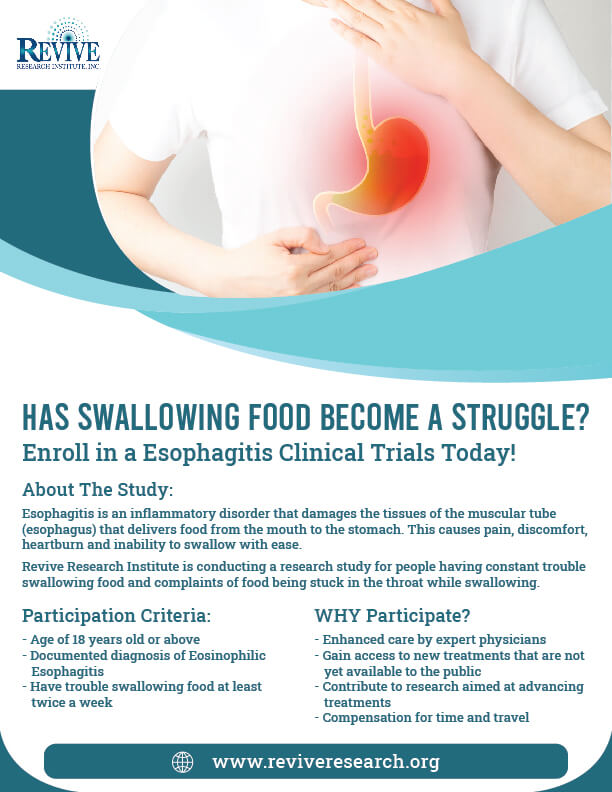Suffering From Eosinophilic Esophagitis?
Clinical Trials May Be An Option!
Eosinophilic Esophagitis (EoE) more commonly known as Allergic Esophagitis is a painful condition where the esophagus becomes inflamed due to the presence of certain allergens. Due to this inflammation, the esophagus does not contract properly leading to difficulty in swallowing, heartburn, abdominal pain and vomiting. If left untreated, the esophagus can narrow and develop rings or abscesses.
You are at a greater risk for developing this condition if you have Atopic dermatitis, asthma or food or environmental allergies.
Despite available medications, there is an unmet need to find a potential Eosinophilic Esophagitis treatment. If you meet the eligibility criteria mentioned below, there might be a potential treatment option for your condition.
Participation Criteria:
- Are 18 years of age or older
- Diagnosed with Eosinophilic Esophagitis (EoE)
- Can comply with study medication and procedure
We, at Revive Research Institute, are conducting a Phase 2 Gastroenterology Clinical Trials with the goal of assessing the long term effects of a study drug that may help in the treatment of Esophagitis in people diagnosed with Active Eosinophilic Esophagitis (EoE).
*To participate, please fill the online form. Participation in any of our Clinical Trials including the Eosinophilic Esophagitis Clinical Trial is free of cost to you. You DO NOT have to pay to participate. Insurance is not required.


